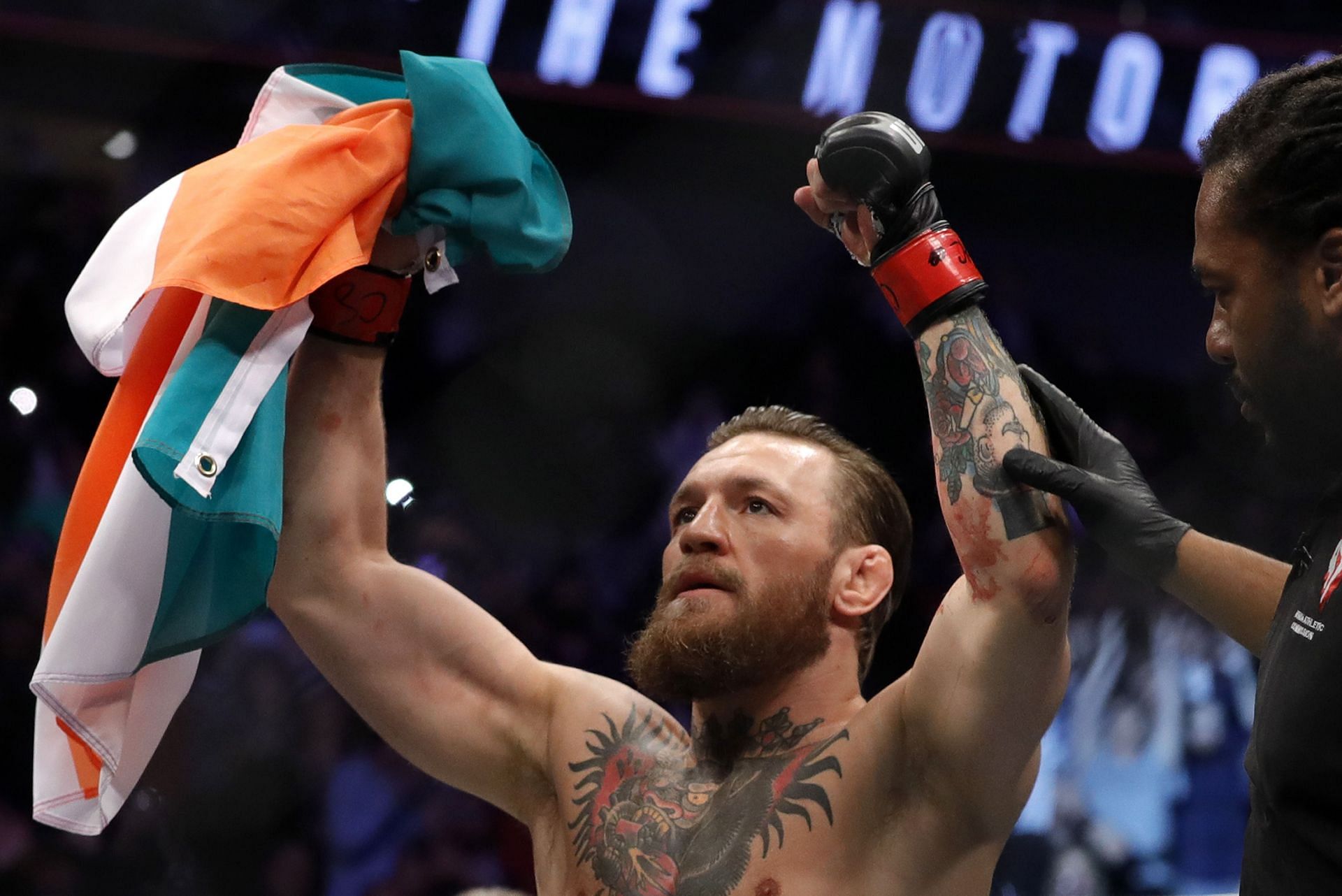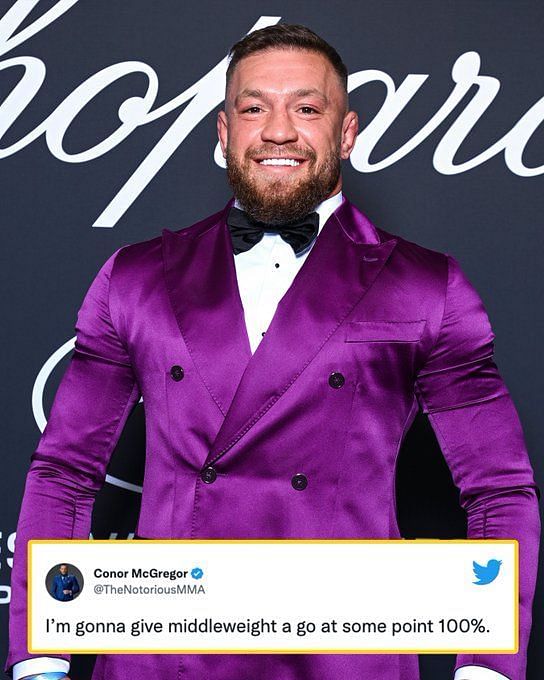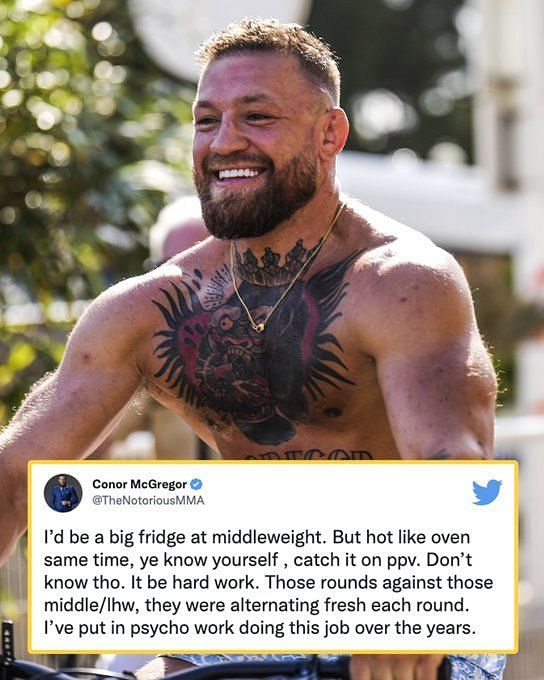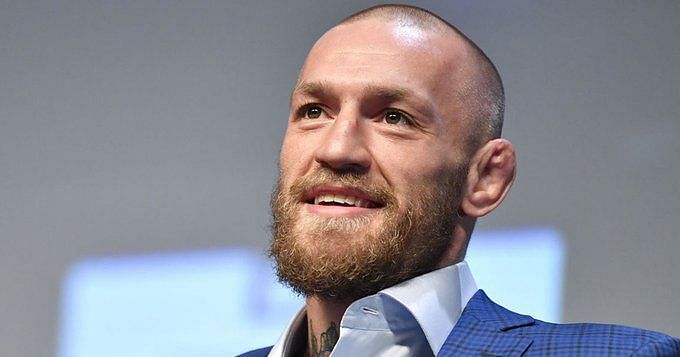
5 reasons why Conor McGregor shouldn’t make his teased move to middleweight
Conor McGregor's inevitable return to the UFC is one of the most anticipated things in MMA. Fans are hopeful that the promotion's first-ever simultaneous two-division champion will step back inside the octagon in 2023. Given the Irishman's recent bulk, many wonder exactly which division he'll compete in.
Due to his newly accrued muscle mass, 'The Notorious' appears to be too large to safely cut down to 155 lbs for a lightweight return. Thus, the expectation is that his return bout will take place in the welterweight division. However, Conor McGregor recently expressed his intentions to ply his trade at middleweight.
While the Irishman is likely enticed by the possibility of capturing a third world title in the UFC, it's as unlikely a possibility as any. In fact, his desire to test the waters at 185 lbs might end in disastrous fashion if he pursues it. There are a multitude of reasons why that is, and this list details five of them.
#5. Conor McGregor is too small to fight at middleweight
Middleweight might as well be a weight class made up of giants for any fighter who once competed at 155 lbs. With the exception of Kelvin Gastelum and possibly Robert Whittaker, the UFC's current crop of 185'ers are large enough to be decently-sized light heavyweights.
Conor McGregor, by contrast, was once small enough to fight at featherweight. At five feet and nine inches tall, the Irishman will be at a significant strength and size disadvantage. Darren Till, who is much larger than 'The Notorious,' couldn't stop a fighter who previously had an 18% takedown success rate from outwrestling him.
The former two-division UFC champion will be at a far more pronounced disadvantage. The likes of Derek Brunson and Marvin Vettori will simply walk through any offense he can mount and drag him to the mat without effort. Furthermore, he'll be too small to absorb the power from a 185'er's strikes.
#4. The division has no good matchups for him
If Conor McGregor does indeed try to fight at middleweight, it won't just be against anyone. Given the Irishman's elitism, he'll face someone he feels is worthy of sharing the octagon with him. Thus, his potential foe will either be a former champion or a top contender.
Were he to skip the line and face Alex Pereira, there would be no chance of him defeating the former two-division Glory kickboxing champion. Similarly, he'll be severely outmatched by another world-class striker in Israel Adesanya. The same is true if he faces Robert Whittaker.
Even a less technical striker like Paulo Costa would simply walk through the Irishman's offense. After all, if Yoel Romero couldn't knock 'Borrachinha' out, a former 145'er certainly won't.
#3. He'll encounter stylistic difficulties
Conor McGregor has often benefitted from being taller and longer than his opponents. Unfortunately, he'll enjoy no such advantage at 185 lbs. He'll be shorter than everyone he faces save for Kelvin Gastelum. Ireland's finest typically fights long while forcing his opponents to run into his counter-straight lefts.
He uses a wide, bladed karate stance which enables him to bounce back and forth. The stance affords him the ability to dart in and out of range with exceptional speed. He darts forward to draw out his opponent's punches. Once his foe obliges, 'The Notorious' bounces away, causing his opponent's punch to fall short.
The moment he does so, he bounces forward with a straight left over the top. Additionally, he often leans his upper-body forward until his shoulders are parallel with his lead knee. While this adds extra inches of reach to his punches, it causes him to lead with his face.
Against shorter foes, he's fairly untouchable. Against opponents who slightly exceed his height like Nate Diaz, he struggles. However, against opponents the size of middleweights, Conor McGregor will overextend on everything he throws.
#2. His cardio will suffer
Conor McGregor's cardio has never been his strong suit. However, that rarely mattered at featherweight since his opponents were small enough that his punching power crushed them before his cardio was depleted. In the lightweight division, the Irishman encountered greater struggles.
The 155'ers were large enough to weather the early storm of his initial blitz and make him pay for his massive energy expenditure. At middleweight, Conor McGregor will be carrying so much extra muscle mass that he'll tire out even quicker than he usually does.
As an athlete with an abundance of fast-twitch muscle fibers, he isn't built for cardio-intensive bouts. Unfortunately, the 185'ers will be too big for his initial onslaught to have a significant effect. Furthermore, due to the added weight, he'll tire out far more quicker.
Georges St-Pierre, who spent most of his career as a welterweight, had phenomenal cardio. Yet even he tired fairly quickly as a middleweight due to the strain of his added weight.
#1. A loss would be especially damaging
MMA is a brutal and unforgiving sport. Conor McGregor is a highly skilled fighter, however, the damage he'll be exposing himself to at 185 lbs will be beyond his ability to absorb. At middleweight, he'll be facing opponents who are so large in size that a loss could be exceedingly punishing.
The thought of a middleweight like Paulo Costa unloading an onslaught of punches with the Irishman trapped against the fence is troubling. While the same scenario didn't lead to life-changing damage when he faced Dustin Poirier, it would be entirely different against a middleweight.
Similarly, Derek Brunson securing top control and ground-and-pound against him will end very badly. The damage that 'The Notorious' is likely to sustain might change him permanently. He'll never be the same again and will likely end up as a cautionary tale.



